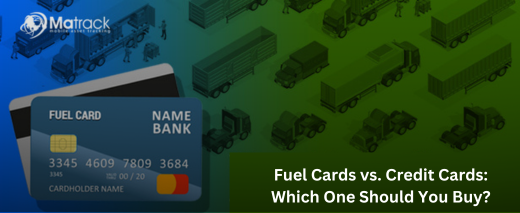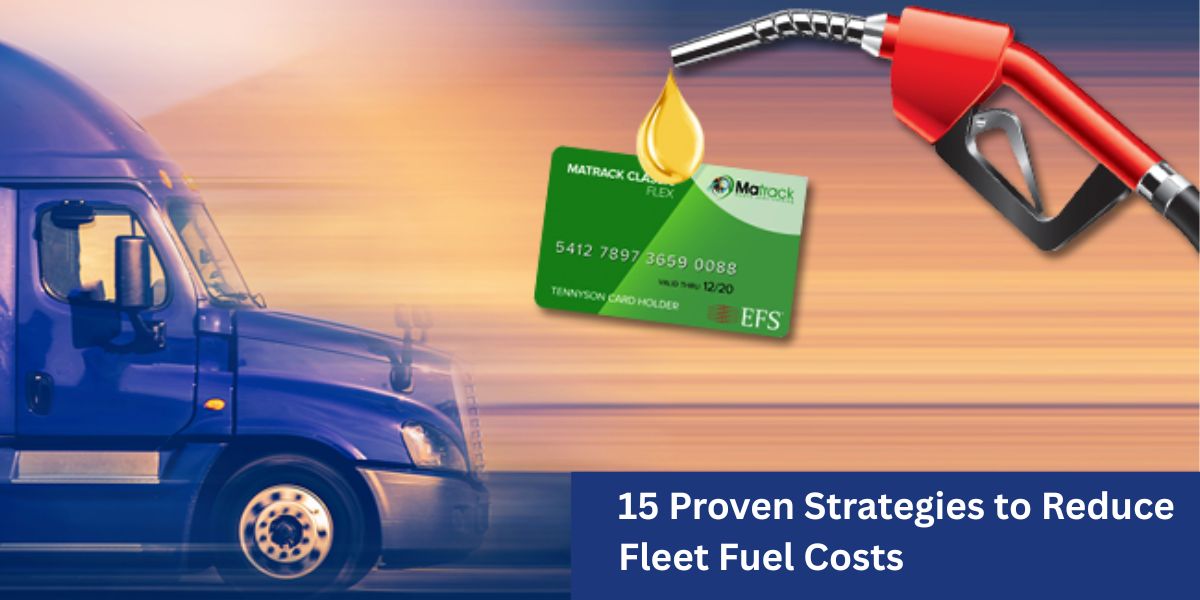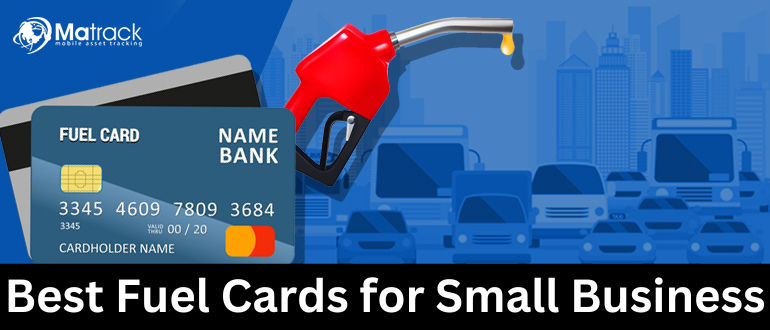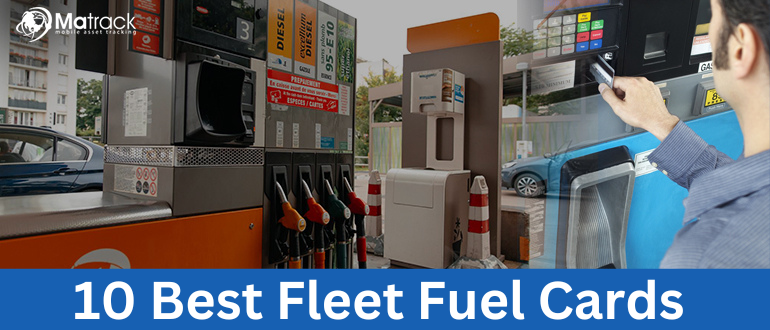Key Takeaways:
- Fuel cards are ideal for businesses that need controlled fuel spending, detailed tracking, and cost-saving discounts.
- Credit cards provide greater spending flexibility, offering cashback, rewards, and the option to carry a balance.
- Fuel cards help prevent unauthorized spending, while credit cards allow broader usage but may lead to interest charges.
- Choose a fuel card for managing business fuel expenses and a credit card for everyday purchases with financial flexibility.
What Is a Fuel Card?
A fuel card is a specialized payment card designed exclusively for purchasing fuel and vehicle-related services. It is widely used by businesses with fleets to track fuel expenses, set spending limits, and reduce costs. Some fuel cards are restricted to specific fuel station brands, while others can be used at multiple locations.
Key Features of Fuel Cards:
- Limited Usage: Restricted to fuel and vehicle-related expenses.
- Expense Tracking: Provides detailed reports on fuel spending.
- Spending Control: Limits purchases to fuel-only transactions.
- Discounts & Rebates: Some providers offer savings on fuel purchases.
- No Interest Charges: Works as a charge card with full payment due each cycle.
How Fuel Cards Work
A fuel card functions as a charge card designed for fuel and vehicle-related expenses. Instead of providing a general credit line, it allows businesses and individuals to track, control, and optimize fuel costs.
- Application & Approval: Businesses or individuals apply for a fuel card through a provider, specifying usage and spending limits.
- Card Issuance & Activation: Once approved, the card is linked to a central account and activated for use.
- Fuel Purchases: Users swipe the card at participating fuel stations to pay for fuel, sometimes for vehicle maintenance.
- Transaction Monitoring: Purchases are automatically recorded in a digital system, with detailed reports on fuel consumption and spending patterns.
- Billing & Payment: Unlike credit cards, fuel cards require full payment at the end of each billing cycle, ensuring no interest accrues.
- Discounts & Rebates: Some providers offer per-gallon discounts, volume-based rebates, or tax benefits for business fuel expenses.
Types of Fuel Cards
- Branded Fuel Cards: Issued by specific fuel companies like Shell, BP, or Exxon, usable only at their stations.
- Universal Fuel Cards: Accepted at multiple gas stations, offering more flexibility.
- Fleet Fuel Cards: Designed for businesses managing multiple vehicles, offering tracking and spending controls.
- Prepaid Fuel Cards: Loaded with a fixed balance and used until funds are exhausted.
Advantages of Using a Fuel Card
Cost Savings on Fuel
Many fuel card providers offer discounts per gallon or volume-based rebates, reducing fuel expenses.
Better Expense Control
Businesses can restrict purchases to fuel and vehicle-related expenses, preventing unauthorized spending.
No Interest Charges
Unlike credit cards, fuel cards work as charge cards, meaning balances must be paid in full each cycle, avoiding interest.
Tax Benefits & Reporting
Fuel cards generate detailed invoices, simplifying tax deductions for businesses.
What Is a Credit Card?
A credit card is a general-purpose financial tool that allows users to make purchases on credit. It provides a revolving credit line, enabling users to pay for goods and services, including fuel, and settle the balance over time.
Key Features of Credit Cards:
- Multi-Purpose: Can be used for fuel, shopping, travel, and more.
- Credit Limit: Allows spending beyond available cash with a pre-approved limit.
- Rewards & Cashback: Many credit cards offer points or cashback on fuel purchases.
- Interest Charges: Accrues interest on unpaid balances.
- Flexible Repayments: Users can pay the full bill or minimum payments while carrying a balance.
How Credit Cards Work
A credit card provides a revolving credit line, allowing users to pay for fuel, shopping, travel, and various other expenses. It offers financial flexibility by enabling partial payments while carrying a balance.
- Application & Credit Check: Banks assess the applicant’s creditworthiness before issuing a credit card.
- Credit Limit Allocation: Users receive a pre-approved spending limit based on their credit score and financial profile.
- Purchases & Transactions: The card can be used for fuel and other purchases at any merchant accepting credit cards.
- Billing Cycle & Statement: At the end of each billing cycle (typically monthly), the card issuer generates a statement showing total spending, due payments, and interest charges (if applicable).
- Payment Options: Users can either pay the full amount (to avoid interest) or make a minimum payment and carry a balance to the next cycle.
- Interest Charges & Fees: If the full balance is not paid, interest is applied to the remaining amount. Some cards may have annual fees, late payment charges, or cash withdrawal fees.
- Rewards & Cashback: Many credit cards provide cashback, reward points, or travel miles based on spending, including fuel purchases.
Types of Credit Cards
- Standard Credit Cards: General-purpose cards with no specific rewards structure.
- Fuel Cashback Credit Cards: Offer cashback or discounts on fuel purchases.
- Rewards Credit Cards: Provide points on spending, which can be redeemed for fuel or other perks.
- Business Credit Cards: Designed for business owners to manage company expenses, including fuel.
Advantages of Using a Credit Card
Versatile Payment Option
Credit cards are widely accepted and can be used for fuel, shopping, travel, and other expenses.
Earn Rewards & Cashback
Many credit cards provide cashback or reward points on fuel purchases, adding financial benefits.
Credit Flexibility
Unlike fuel cards, credit cards offer a revolving credit line, allowing users to manage payments over time.
Emergency Backup
A credit card acts as a financial cushion for unexpected expenses.
Fuel Card vs. Credit Card: Key Differences
| Feature | Fuel Card | Credit Card |
| Usage Scope | Fuel and vehicle-related expenses only | All types of purchases |
| Tracking & Reporting | Detailed reports on fuel spending | General transaction history |
| Spending Control | Limits purchases to fuel & vehicle services | No specific restrictions |
| Interest Charges | No interest charges | Interest applies on unpaid balances |
| Discounts & Rewards | Fuel discounts and rebates | Cashback, points, and miles on various spending |
| Annual Fees | Usually low or no annual fees | May have annual fees, depending on the card type |
| Ideal Users | Businesses with fleets & high fuel consumption | Individuals & general-purpose spending |
Which One Should You Choose?
The choice between a fuel card and a credit card depends on your specific needs. Below is a detailed comparison based on different user scenarios.
Choose a Fuel Card If:
- You manage a business fleet and need accurate fuel tracking and expense reports.
- You want to reduce fuel costs through exclusive discounts and rebates.
- You need strict spending control to prevent unauthorized expenses.
- You prefer automatic fuel expense reporting for easier tax deductions.
- You don’t want to deal with interest charges since fuel cards require full monthly payments.
Best For:
- Businesses with multiple vehicles
- Trucking, logistics, and delivery companies
- Taxi and ride-sharing businesses
- Construction and service companies with high fuel usage
Choose a Credit Card If:
- You need a versatile payment method for fuel, shopping, dining, and other expenses.
- You want to earn rewards or cashback on fuel and general purchases.
- You require financial flexibility with the option to carry a balance and pay over time.
- You need an emergency backup payment option for unexpected expenses.
- You want fraud protection and additional security features on all purchases.
Best For:
- Individuals who want cash back or travel rewards
- Small business owners who prefer a multi-purpose card
- People needing credit flexibility for large purchases
- Anyone looking for an all-in-one financial solution
Matrack Fleet Fuel Card: Save More on Every Mile
Matrack Fleet Fuel Card helps businesses cut fuel costs by saving up to 50 cents per gallon and routing drivers to the cheapest gas stations. Accepted at 95% of U.S. fuel stations, it provides maximum flexibility and convenience for fleet owners.
With real-time tracking and spending controls, businesses can monitor fuel purchases, set transaction limits, and simplify IFTA reporting. The Matrack platform also offers live fuel pricing updates, ensuring drivers always find the most cost-effective routes.
Conclusion
Choosing between a fuel card and a credit card depends on your specific needs.
- If your focus is fuel management and cost control, a fuel card is the best option.
- If you need versatility, credit flexibility, and cashback rewards, a credit card is more suitable.
For businesses managing fleet expenses, a fuel card offers better tracking, spending control, and savings. However, for individuals looking for cashback and broader usage, a credit card is the smarter choice.
Before making a decision, compare fees, discounts, interest rates, and benefits to choose the best option for your financial needs.



